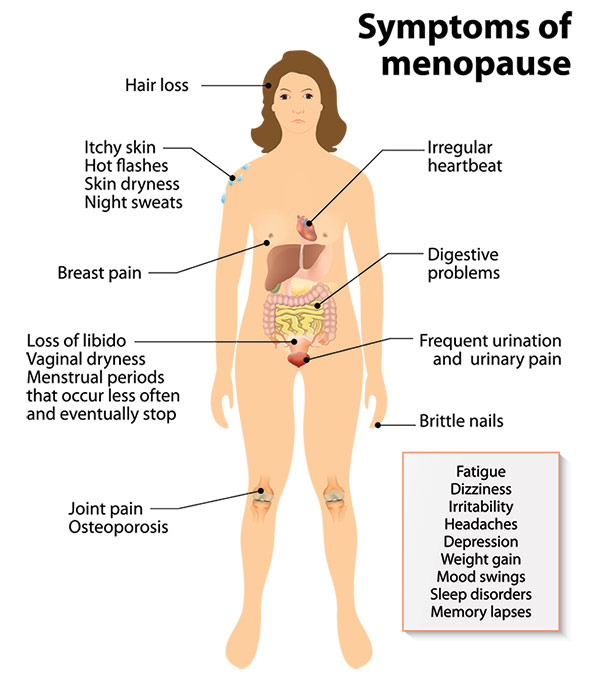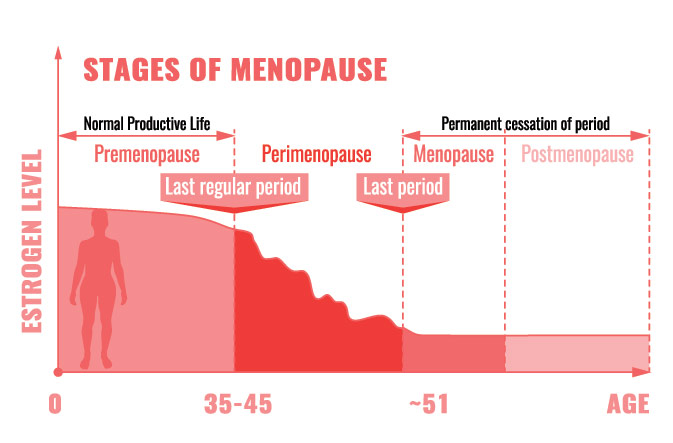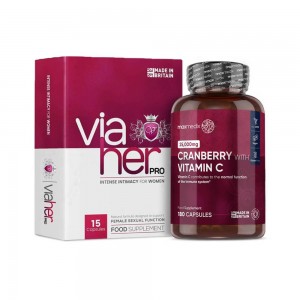What Is Menopause?
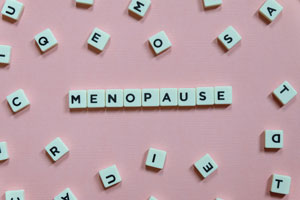
Menopause marks the point in life when a woman’s menstrual cycle ends – usually in the early 50s, but it’s possible that it can happen earlier in sufferers of premature menopause. This condition can be caused by a number of factors, with symptoms including mood swings, anxiety, hot flashes and decreased libido.
Menopause, often referred to as ‘the change of life’, can be upsetting, uncomfortable and worrying for some women. This time in a woman’s life marks the end of the menstrual cycle and usually leads to a loss of sex drive. The average age of the onset of menopause in women in the United Kingdom is 51, but many women go through the change much sooner – this is known as premature menopause.
Menopause can be both physically and mentally draining on a woman’s well-being, impacting hugely on hormone balance and leading to a variety of symptoms including hot flushes, night sweats and anxiety.
Causes Of Menopause
Women are born with a particular number of egg cells in ovaries. With age, the number gradually reduces and declines rapidly from the age of 40. Menopause occurs when ovaries due to too few eggs fail to produce oestrogen and progesterone that are required to carry out the normal menstruation process. While in most of the cases menopause is a natural part of ageing, it can also occur if you undergo surgical removal of ovaries due to some medical conditions like ovarian cancer or hysterectomy.
The main cause of menopause in older women is lowered oestrogen levels – as oestrogen production in the ovaries is gradually reduced, the menstrual cycle winds down before eventually stopping completely.
Signs And Symptoms of Menopause
Most women in the UK experience menopause by the age of 51. During menopause level of follicle stimulating hormone (FSH) and luteinising hormone (LH) increases as ovaries are unable to respond to them. It’s due to these hormonal changes, women experience a lot of physical and emotional symptoms. Some of the common menopause symptoms are:
- Hot flushes and night sweats
- Urinary incontinence and urgency
- Back pain and joint pain
- Increased risk of inflammation and infection
- Breast tenderness
- Dryness and itching
- Mood swings
- Low libido
- Depression
- Vaginal dryness
- Insomnia
Here it’s important to note that menopause isn’t always bothersome. In some women, menopause symptoms aren't so prominent, while in other women they can be really troublesome. So, it’s safe to say that the severity of menopause symptoms varies for every woman.
Premature Menopause
Early menopause occurs before the age of 45, while premature menopause occurs before the age of 40. A small percentage of women are diagnosed with premature menopause in their early 30s too. Since it occurs in 1 in 100 women, the diagnosis is a bit tricky. The premature or early menopause symptoms aren't any different from those of regular menopause. However, the perimenopause or the period for which menopause lasts may be longer for those undergoing this problem.
An underactive thyroid, family history of early menopause, Turner’s syndrome, removal of ovaries due to some underlying condition or Type 1 diabetes may be some of the underlying causes of premature menopause. Chemotherapy may also result in a sudden stop in the menstrual cycle and cause early menopause.
It’s also important to know that premature menopause increases the risk of heart disease, Parkinson’s disease, or osteoporosis because of the lack of oestrogen in the body. An early menopause can also hamper your mental and emotional well-being and result in anxiety or depression or may make you feel less attractive or desirable. However, communicating with your partner or speaking to a counsellor can help you cope with premature menopause.
Coping With Vaginal Dryness And Menopause
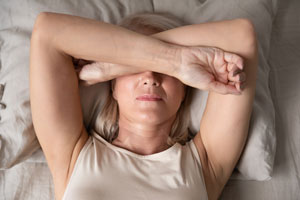
Vaginal dryness is a condition that most of the women suffer in silence. It’s believed that over 75% of women are on radar at some point in their lives. This makes the condition much more normal and common. You’re not alone in suffering from this common condition. We encourage you to read below for more information and take a step towards regaining your sexual confidence.
The lack of vaginal lubrication can prove to be a nightmare in the bedroom. This could be due to physiological factors like hormonal changes to psychological issues like anxiety, and so on. Fortunately, there are many options to overcome a dry vagina. But as the first step towards vaginal problems treatment, we should figure out the source of discomfort.
How To Prevent And Treat Vaginal Dryness
Treatment for vaginal dryness can depend on a number of different factors. Hormonal changes can often cause great discomfort and inconvenience. Some doctors recommend oestrogen therapy like Omega7 Capsules which is used to help reduce common menopausal symptoms. If you’re looking for local oestrogen hormone treatments that are inserted into the vagina, rings, pellets, or creams can be an ideal solution for you. These can even work effectively when used along with medications by raising the levels of oestrogen. There are also skin patches as an option to release oestrogen throughout the body.
So, while vaginal dryness is considered as a common and frustrating condition, there are ways to alleviate the discomfort. If a lack of lubrication is causing painful sex, don’t panic and resort to the best way by talking to your doctor about all possible treatments. You can also use natural lubricants to cope with this problem.
Natural Solutions For Menopause
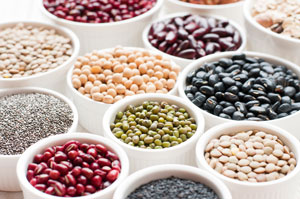
For many women, the biggest complaint relating to the menopause is the effect it has on libido where many women no longer feel the urge to have sex following the menopause, developing vaginal dryness and even the inability to reach orgasm. After years of intensive research, there are now a number of options which work to help reverse these effects. The most popular solution to this issue is hormone replacement therapy (HRT) – however, if you would prefer not to opt for this costly and invasive treatment supplements and creams are out on the market.
Hormone creams for menopause:
Studies suggest that natural hormone creams assist in relieving the menopause symptoms like hot flashes, depression, hot sweats and low libido. These creams are enriched with progesterone along with herbal ingredients known for their properties to ease menopause symptoms. The creams are designed to address the body’s needs during this difficult time in the life of women. Hormonal replacement therapies are often associated with potential risks of heart diseases, breast cancer or stroke. The all natural ingredients make these creams safe for use with no known side effects.
Natural menopause supplements:
Vaginal dryness can affect your sex life and can have a negative impact on relationships too. Natural menopause supplements are formulated to help you cope with this problem. Dietary menopause supplements like Omega7 contain an ideal blend of natural ingredients that help cope with vaginal dryness and support the body’s immune system to help you feel energetic throughout the day.
Other natural solutions:
Avoiding spicy food, coffee and alcohol will keep hot flashes at bay during and post menopause. Add Omega-3 rich foods or fish oils, phytoestrogen rich foods like kidney beans, soybeans and lentils to the diet to improve oestrogen levels in the body. Meditation and exercise can also help ease menopause symptoms.
The Final Word
There are a lot of assumptions around menopause and its side effects. Whilst the menopause can be linked with anxiety, depression, and low libido and can even be the underlying cause behind a few illnesses, all you need is the correct approach. Modifications in lifestyle, diet and the help of natural menopause supplements and products can make your journey through this “change of life” smoother. Here at ShytoBuy, we have a wide range of natural menopause solutions, including creams, pills and lubricants. All the products in our range are completely natural and contain herbal ingredients, which makes them side-effects free.
